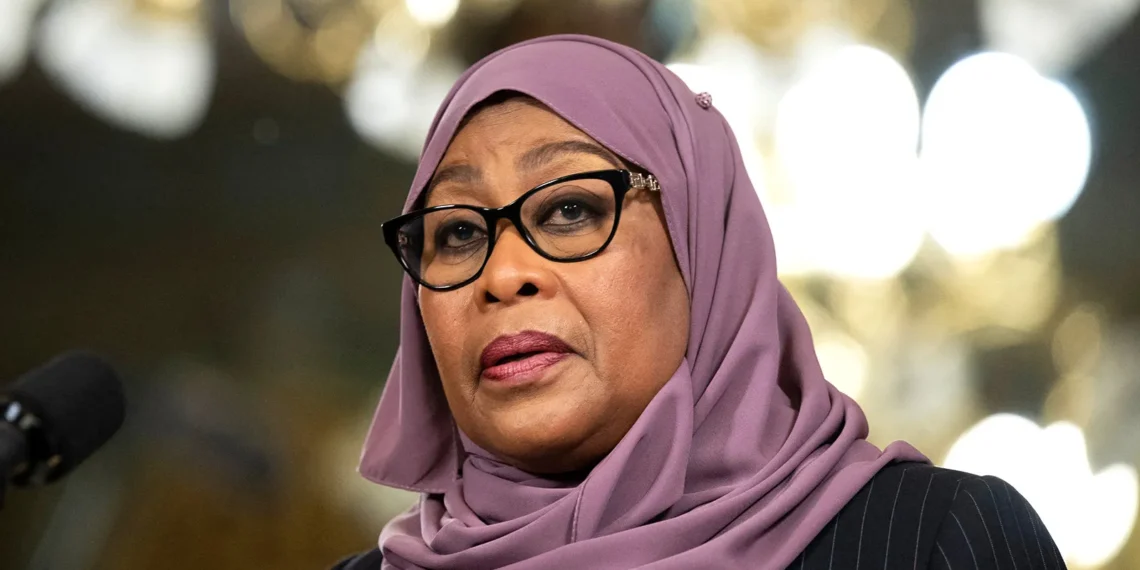Tanzania’s increasingly hardline stance against opposition figures and activists has sparked growing concern across East Africa, as the country prepares for national elections in 2025. The recent arrest of prominent opposition leader Tundu Lissu, the suspension of Mwananchi Communications, and the deportation of foreign activists have drawn sharp criticism from civil society and raised fears of democratic backsliding.
Political analyst and researcher Dr. Chipo Dendere, in an interview with the Vaultz News, stated that these developments reflect a growing authoritarian impulse. “Tanzania’s crackdowns demonstrate a strategic tilt toward asserting national sovereignty over maintaining democratic freedoms,” she noted.
According to her, the government justifies its actions as pre-emptive measures to preserve stability. However, the consequences are dire for civil liberties. “The suppression of free expression, political pluralism, and assembly undermines the foundations of a democratic society,” she warned.
“Tanzania appears to be testing how far it can push these restrictions without triggering significant backlash, maintaining a superficial commitment to stability rather than a substantive balance with democratic freedoms.”
Dr. Chipo Dendere
The targeting of foreign nationals has also created diplomatic tension within the East African Community (EAC). “These actions challenge the EAC’s principles of good governance and human rights,” she explained, suggesting that such moves could erode trust among member states.
However, she expects regional leaders to tread carefully. “Kenya and Uganda, grappling with their own domestic challenges, may opt for diplomatic restraint rather than confrontation,” she said, adding that the broader impact may be felt through weakened civil society collaboration.
Tanzania’s actions also appear to violate key international treaties, including the African Charter on Human and Peoples’ Rights. While the country is a signatory, enforcement remains weak. “The African Commission lacks the authority to impose binding sanctions, allowing Tanzania to exploit this gap,” she observed.
Tanzania Maneuvering To Consolidate Power
Many analysts believe these moves are not isolated but part of a calculated effort to consolidate power ahead of the 2025 vote. “This strategy serves multiple purposes: it neutralizes political rivals, controls the electoral narrative, and fosters an environment of fear,” she said.
“The crackdowns signal not just pre-election maneuvering but a broader intent to entrench authoritarian governance, prioritizing power consolidation over democratic legitimacy.”
Dr. Chipo Dendere
The result, she warned, is that the upcoming elections may be “reduced to a potential formality.”

As pressure mounts, civil society organizations and international actors are navigating a complex terrain. The expert recommends a locally led approach, supported quietly by regional allies. “Local civil society should take the lead, with international actors providing discreet support,” she advised.
She believes diplomatic engagement is the most viable route, urging stakeholders to link human rights to regional stability and economic progress — areas aligned with Tanzania’s strategic interests.
“Civil society and regional bodies can advocate for human rights in Tanzania through a strategic, collaborative approach that respects sovereignty concerns. First, they should use diplomatic channels within the EAC and African Union (AU), framing human rights as integral to regional stability and economic progress—areas aligned with Tanzania’s interests.
“Second, local civil society should take the lead, with international actors providing discreet support. This empowers domestic voices and weakens the government’s ability to dismiss advocacy as foreign interference. Regional mechanisms, such as the EAC Court of Justice, could also be leveraged to challenge violations, though their impact depends on enforcement willingness.”
Dr. Chipo Dendere
Regarding sanctions, she was cautious but firm: “Targeted international measures—like sanctions on key officials or conditional aid—could amplify pressure, but must be coordinated with regional partners.”
“The aim is to incentivize compliance through dialogue and coalition-building, balancing advocacy with sensitivity to sovereignty to prevent further entrenchment of repression.”
Dr. Chipo Dendere
Tanzania’s political tightening, she concluded, will test not just its internal institutions but the integrity of regional and international systems committed to democracy and human rights.
READ ALSO: Ghana – a Nation Without Policy Memory
















